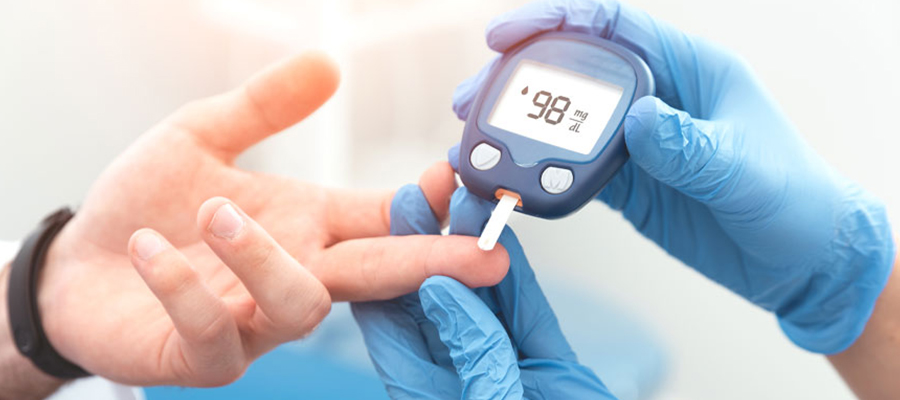
Estimated reading time: 4 minutes and 17 seconds
Diabetes
Comprehensive Diabetes Management at Aktif International Hospitals
Diabetes is a chronic metabolic disorder characterized by elevated blood sugar levels resulting from either insufficient insulin production or ineffective insulin utilization by the body. At Aktif International Hospitals, we offer comprehensive diabetes management services aimed at empowering individuals with diabetes to lead healthy, fulfilling lives. Our multidisciplinary team of endocrinologists, diabetes educators, nutritionists, and support staff work collaboratively to provide personalized care, education, and support to individuals with diabetes to achieve optimal health outcomes.
Frequently Asked Questions
What is diabetes, and what are the different types of diabetes?
Diabetes is a metabolic disorder characterized by elevated blood sugar levels, which can lead to serious health complications if left untreated. There are several types of diabetes, including:
- Type 1 diabetes: Type 1 diabetes is an autoimmune condition in which the immune system mistakenly attacks and destroys the insulin-producing beta cells in the pancreas. This results in little to no insulin production, requiring lifelong insulin replacement therapy.
- Type 2 diabetes: Type 2 diabetes is a metabolic disorder characterized by insulin resistance, where the body’s cells become resistant to the effects of insulin. Initially, the pancreas compensates by producing more insulin, but over time, insulin production may decrease, leading to elevated blood sugar levels.
- Gestational diabetes: Gestational diabetes occurs during pregnancy when hormonal changes and insulin resistance result in elevated blood sugar levels. Although gestational diabetes typically resolves after childbirth, women with a history of gestational diabetes are at increased risk of developing type 2 diabetes later in life.
- Other types of diabetes: Other less common types of diabetes include gestational diabetes insipidus, maturity-onset diabetes of the young (MODY), and secondary diabetes resulting from other medical conditions or medications.
Who is at risk of developing diabetes?
Risk factors for developing diabetes may include:
- Family history: Having a family history of diabetes increases the risk of developing type 1 or type 2 diabetes.
- Sedentary lifestyle: Lack of physical activity and sedentary behavior are associated with an increased risk of developing type 2 diabetes.
- Obesity: Being overweight or obese increases the risk of insulin resistance and type 2 diabetes.
- Unhealthy diet: Consuming a diet high in refined carbohydrates, sugars, and processed foods can contribute to weight gain and increase the risk of developing type 2 diabetes.
- Age: The risk of developing type 2 diabetes increases with age, particularly after the age of 45.
- Ethnicity: Certain ethnic groups, including African Americans, Hispanic/Latino Americans, Native Americans, Asian Americans, and Pacific Islanders, are at increased risk of developing type 2 diabetes.
What are the symptoms of diabetes?
Common symptoms of diabetes may include:
- Frequent urination (polyuria)
- Excessive thirst (polydipsia)
- Increased hunger (polyphagia)
- Unexplained weight loss
- Fatigue
- Blurred vision
- Slow wound healing
- Recurrent infections, such as urinary tract infections or yeast infections
- Tingling or numbness in the hands or feet (diabetic neuropathy)
It is essential to recognize and seek medical attention for these symptoms as early diagnosis and treatment are critical in managing diabetes and preventing complications.
How is diabetes diagnosed?
Diabetes is diagnosed through various tests that measure blood sugar levels, including:
- Fasting blood sugar test: This test measures blood sugar levels after an overnight fast and is used to diagnose prediabetes or diabetes.
- Oral glucose tolerance test (OGTT): This test involves drinking a sugary solution, and blood sugar levels are measured before and two hours after drinking the solution to diagnose gestational diabetes or diabetes.
- Hemoglobin A1c test: This test measures average blood sugar levels over the past two to three months and is used to diagnose diabetes or monitor blood sugar control in individuals with diabetes.
Additional tests may be performed to assess insulin levels, pancreatic function, and complications associated with diabetes.
What are the goals of diabetes management?
The goals of diabetes management include:
- Achieving and maintaining optimal blood sugar control to prevent hyperglycemia (high blood sugar) and hypoglycemia (low blood sugar) episodes.
- Managing risk factors for cardiovascular disease, such as high blood pressure, high cholesterol, and smoking.
- Promoting healthy lifestyle behaviors, including regular physical activity, healthy eating, weight management, and stress management.
- Monitoring and managing blood pressure, cholesterol levels, kidney function, eye health, and foot health to prevent diabetes-related complications.
- Educating individuals with diabetes about their condition, treatment options, self-management strategies, and the importance of regular medical care.
Trust Aktif International Hospitals for Expert Diabetes Management
At Aktif International Hospitals, we are dedicated to providing comprehensive diabetes management services to individuals affected by diabetes. Our team of experienced healthcare professionals is committed to delivering personalized care, education, and support to empower individuals with diabetes to live healthy, fulfilling lives. Schedule a consultation with us today and take control of your diabetes with Aktif International Hospitals.
Author: Yusuf Kenan Köseoğlu


 TR
TR FR
FR ES
ES RU
RU RO
RO